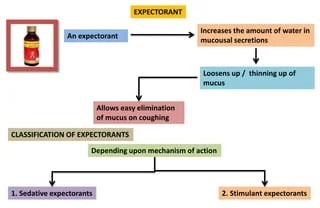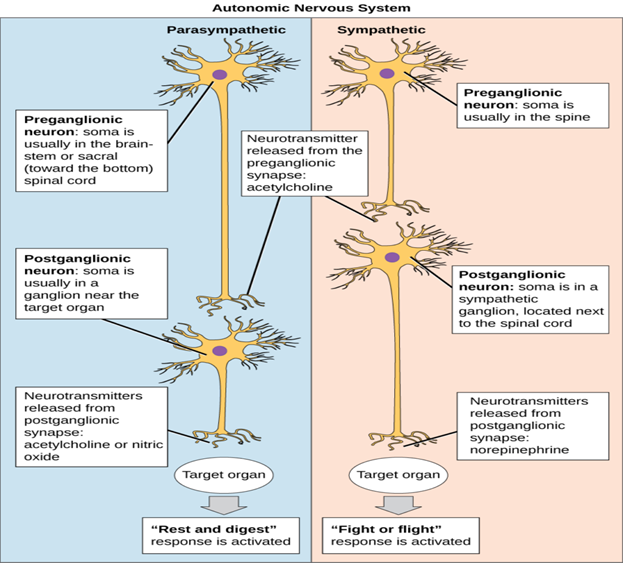A nurse is teaching a client about taking an expectorant to treat a cough. The nurse should explain that this type of medication has which of the following actions?
Reduces inflammation
Dries mucous membranes
Stimulates secretions
Suppresses the urge to cough
The Correct Answer is C
Expectorants are medications that help to loosen and thin mucus in the respiratory tract, making it easier to cough up and expel. They work by increasing the production of respiratory tract secretions, which helps to hydrate and thin the mucus, making it less sticky and easier to clear from the airways. By stimulating the production and secretion of mucus, expectorants promote coughing and facilitate the removal of excess mucus and phlegm from the respiratory system.
It's important to note that expectorants are primarily used for productive coughs (coughs that produce phlegm or mucus). If the cough is dry and non-productive, other types of cough suppressants or remedies may be more appropriate.
Regarding the other options:
Reduces inflammation: Expectorants do not have a direct effect on reducing inflammation in the respiratory tract. Anti-inflammatory medications such as glucocorticoids are typically used for reducing inflammation in conditions like asthma or chronic obstructive pulmonary disease (COPD).
Dries mucous membranes: Expectorants do not have a drying effect on mucous membranes. In fact, they work to increase the hydration and fluidity of respiratory secretions.
Suppresses the urge to cough: Expectorants do not suppress the urge to cough. They promote coughing by facilitating the clearance of mucus and phlegm from the airways. Cough suppressants, on the other hand, are medications used to relieve a dry, non-productive cough by suppressing the cough reflex.

Nursing Test Bank
Naxlex Comprehensive Predictor Exams
Related Questions
Correct Answer is C
Explanation
The sympathetic nervous system postganglionic neurons primarily release norepinephrine as their neurotransmitter. These neurons are part of the autonomic nervous system and are responsible for coordinating the body's "fight or flight" response to stress or danger.
Norepinephrine acts as a neurotransmitter at the postganglionic synapses and binds to adrenergic receptors in the target tissues, mediating the physiological responses associated with sympathetic activation.
While acetylcholine is the primary neurotransmitter released by the preganglionic neurons of the sympathetic nervous system, it is not the neurotransmitter released by postganglionic neurons. Epinephrine (also known as adrenaline) is released into the bloodstream by the adrenal medulla and acts as a hormone, not a neurotransmitter. Arginine is an amino acid and is not directly involved in the neurotransmission of the sympathetic nervous system.

Correct Answer is D
Explanation
Albuterol is a short-acting beta-agonist bronchodilator, commonly used as a rescue medication for acute asthma symptoms. It works quickly to open up the airways and relieve bronchospasm, helping to alleviate the symptoms of an asthma attack. Beclomethasone, formoterol, and salmeterol are long-acting medications used for maintenance therapy in asthma management, not for immediate relief during an acute attack.
Whether you are a student looking to ace your exams or a practicing nurse seeking to enhance your expertise , our nursing education contents will empower you with the confidence and competence to make a difference in the lives of patients and become a respected leader in the healthcare field.
Visit Naxlex, invest in your future and unlock endless possibilities with our unparalleled nursing education contents today
Report Wrong Answer on the Current Question
Do you disagree with the answer? If yes, what is your expected answer? Explain.
Kindly be descriptive with the issue you are facing.
